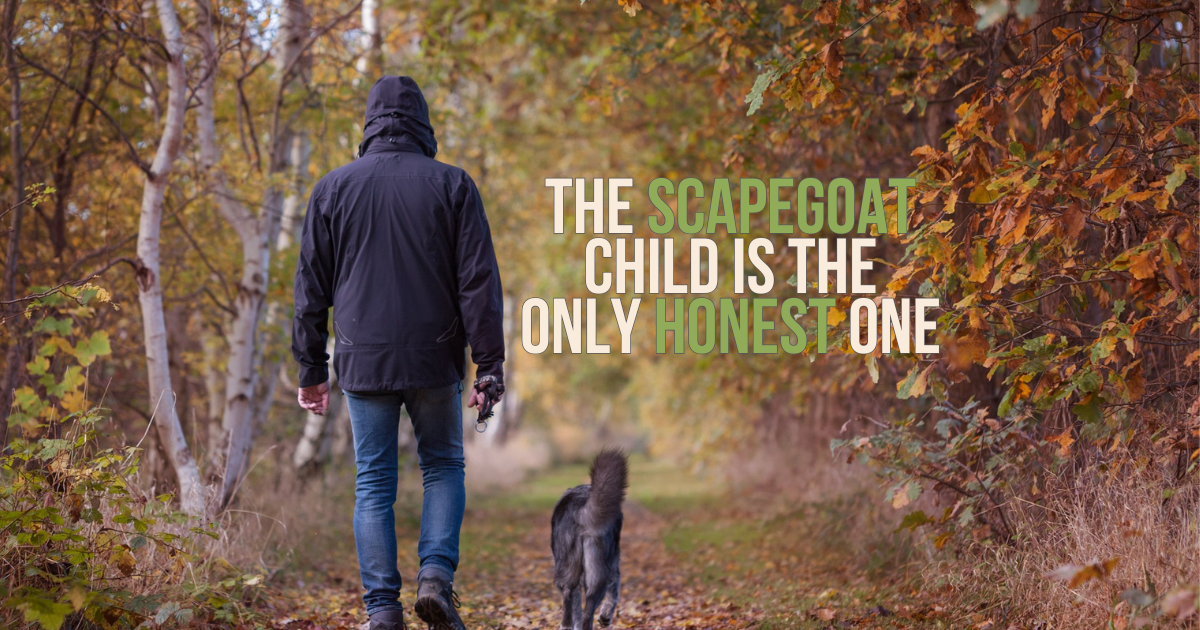Being the Family Scapegoat or Problem Child: Honesty About Dysfunction
The Truth About Being the Family Scapegoat
If you've always been unfairly blamed, labeled as difficult, or made to feel like the one who just couldn’t get it together—this may help you understand why.
I know the pain. I was the scapegoat in my own family. I refused to conform to the dysfunction and was branded the problem child for it.
What Family Dysfunction Hides From Us as Children
Most of us don’t understand the full scope of our family’s dysfunction until we’re adults—when relationships start falling apart, or we hit a wall of internal pain that doesn’t make sense. We look back, piece together patterns, and realize the roots stretch all the way into our childhood.
And if you were the family scapegoat, chances are you’ve internalized the belief that something was wrong with you. But here’s the truth:
“Being scapegoated is not a reflection of who you are. It’s a reflection of the dysfunction you were born into.”
The Unspoken Rule: Someone Has to Be the Problem
In dysfunctional families, there's often an invisible rule: someone must carry the weight of all the problems. That role usually falls on the child who is sensitive, outspoken, or simply different.
The truth gets twisted. Suddenly you’re blamed for what you didn’t do, burdened with shame that was never yours.
Maybe your siblings adapted and complied, choosing the illusion of safety over authenticity—even when the environment was toxic. But you couldn’t.
Why You Were Labeled “Too Much”
As children, we learn to survive by conforming. We become emotional chameleons, molding ourselves to feel loved, accepted, and safe.
But some children feel a quiet pull to live truthfully. They’re not trying to rebel—they’re trying to stay connected to who they are. When that self-authenticity becomes threatening to unhealthy adults, it gets punished.
What if your honesty, sensitivity, or strong moral compass was never too much?
What if it was simply too threatening to people who couldn't handle their own truth?
The Labels Were Never About You
Maybe you were told you were too emotional. Too dramatic. Too rebellious—even when you were doing the right thing.
None of those labels define you.
They were never you.
They were the family’s way of avoiding hard truths. Because when someone isn’t ready to confront dysfunction, they sweep it under the rug—along with your identity.
The Scapegoat is Often the Truth-Teller
Often, the scapegoat is the one who sees through the lies. The one who calls out what others are too afraid to name.
Sometimes, the scapegoated child is the one who tells the truth about abuse—and is punished for it.
I was sexually abused at age four. I told the truth. But the adults around me weren’t mature or capable enough to hear it. So they silenced me, shamed me, and accused me of lying.
This is what dysfunctional systems do: they protect themselves by sacrificing the one who exposes the truth.
It’s Not Yours to Carry Anymore
Being the scapegoat is a heavy burden. It teaches you to question yourself in every relationship. You walk on eggshells, terrified the other shoe will drop. You feel like you constantly have to prove your worth—just to be heard, or believed.
But you don’t have to carry that anymore.
You were a child trying to survive in an environment that had no space for your truth. That is not your fault.
You are allowed to honor yourself now. You are meant to.
Healing Isn’t About Blame—It’s About Freedom
Healing from being scapegoated is not about blaming your family—it’s about facing the patterns of harm, naming them, and choosing to live differently.
It’s about honoring the impact, and giving yourself permission to release the shame, break the labels, and return to who you were always meant to be.
What Healing Actually Looks Like
Healing starts with one truth:
“Being scapegoated was never about you. It was about the family’s inability to face their own pain, so they projected it onto the one who could see it.”
Once you understand that, the weight starts to lift.
From there, healing means:
Setting boundaries
Reclaiming your voice
Surrounding yourself with people who see the real you—not the version others forced you to become
Because you were never the problem. You were never broken. You were always holding onto something sacred—your truth.
Reclaim the Part of You That Was Never Lost
The deepest part of your soul—the part that made others uncomfortable—was never wrong. It was real. It was whole.
And now, it’s time to return to it.
The scapegoat role may have been your beginning—but it doesn’t have to be your story. You have the power to heal. To grow. To live free.
You are worthy of love, truth, and acceptance—exactly as you are!
Support Group
If you're looking for a support group, join the TraumaWell Support Collective HERE.
Work With Me:
If you're interested in private coaching sessions with me, schedule a consultation HERE.

